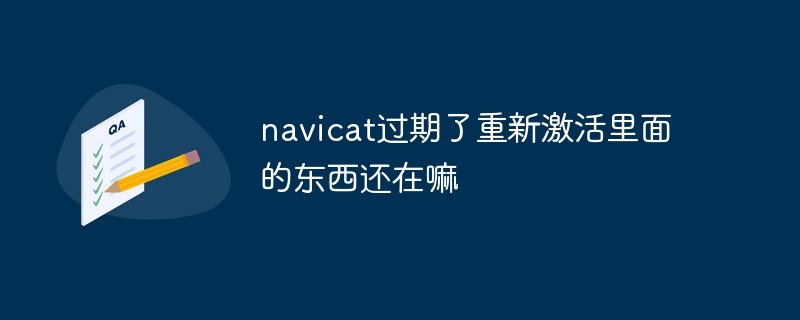Navicat has expired. Re-activate it. Is the content still there?
- 下次还敢Original
- 2024-04-24 02:45:24808browse
After Navicat expires, the internal data will not be lost. Details include: Software functionality is limited, but saved data is not affected. The database connection is still valid and you can continue to access and manage the database. Reactivating Navicat restores all functionality and previous data. It is recommended to back up the database regularly and update Navicat in a timely manner.

Will Navicat data be retained after expiration?
After Navicat expires, the data saved inside it will not be lost.
Details:
Navicat is a database management software mainly used to connect, operate and manage various databases. Data stored in Navicat usually comes from a connected database rather than being stored in Navicat itself.
When Navicat expires, the following things will happen:
- Software feature limitations: Navicat will enter limited functionality mode and some features will not be available, such as Database import/export and SQL editing.
- Saved data is not affected: Data such as database connection information, query history, and user interface settings are still saved in Navicat's configuration file.
- The connection to the database is still valid: Navicat's connection to the database is still valid, which means that the database can continue to be accessed and managed.
Restoring Activation:
If you reactivate Navicat, all functionality will be restored and previously saved data will still be available.
Tips:
- In order to ensure data security, it is recommended to back up the database regularly.
- Update Navicat promptly to get the latest features and security patches.
The above is the detailed content of Navicat has expired. Re-activate it. Is the content still there?. For more information, please follow other related articles on the PHP Chinese website!

